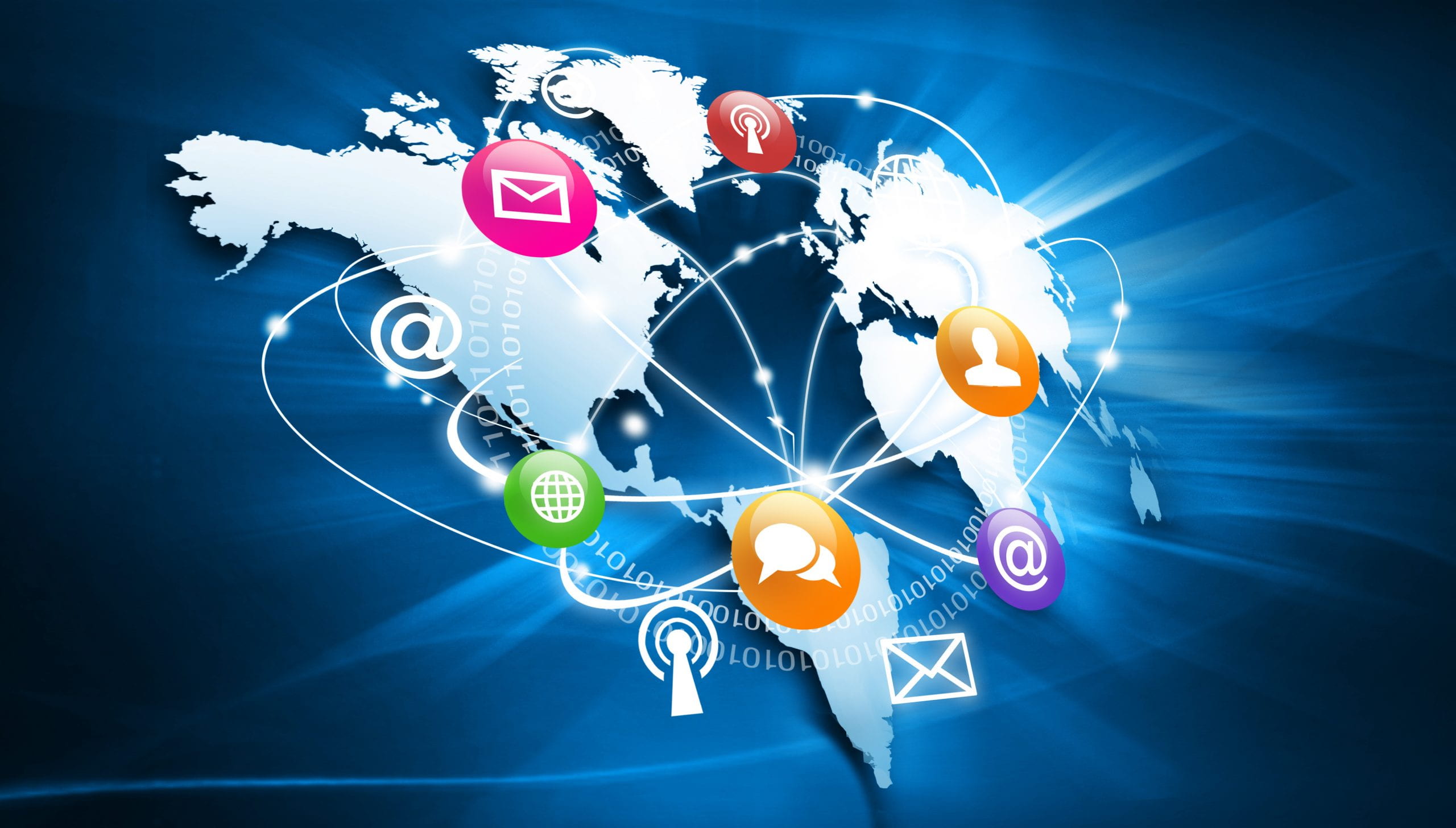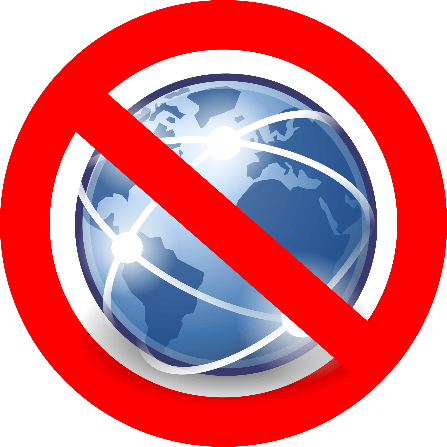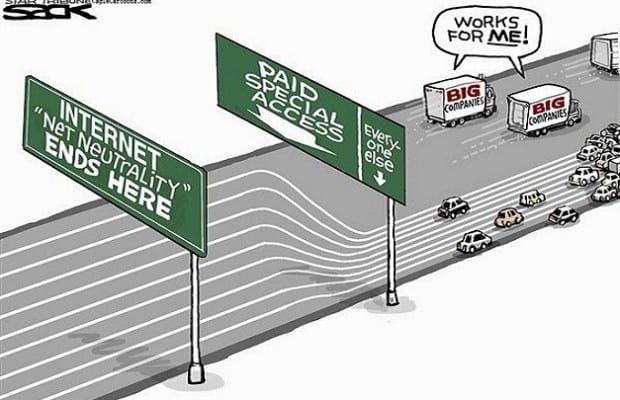I had decided to spend this past Thanksgiving by myself at home with my computer. While waiting for my episode to load, I wondered to myself, “Why is the Internet so slow? Doesn’t my Internet plan guarantee high speed and unlimited data?” These few questions directed me to some episodes from Last Week Tonight with John Oliver and Patriot Act with Hasan Minhaj that addressed Net Neutrality (Net Neutrality I YouTube and Net Neutrality II YouTube) and “Why Your Internet Sucks,” respectively. Although I still had to wait about five minutes or so for the video to constantly stop buffering, that dissatisfaction paled in comparison to everything I was about to learn, particularly how companies will slow connection speeds so people would have to pay more for faster access.

So, before you continue reading, let’s define some of the basic terms used in this article:
- Net Neutrality – The principle that ISPs should provide internet access to all people regardless of source or the type of website being accessed.
- ISPs – Internet Service Providers. These are the people you pay to give you access to the internet.
- VPNs – Virtual Private Networks. These are private networks that will give you privacy and anonymity when using a public network. They “mask your IP address so that your online actions are virtually untraceable.”
- FCC – The Federal Communications Commission. They “regulate interstate and international communications by radio, television, wire, satellite and cable in all 50 states.”

History of Net Neutrality
Coined by Tim Wu, a Columbia University law professor, Net Neutrality called for all ISPs to treat all content equally. Wu had the concern that “broadband providers’ tendency to restrict new technologies would hurt innovation in the long term, and called for anti-discrimination rules.” He reasoned this because if providers were able to choose which content will be available for users, then newer companies would never have the chance to break out and grow. Had this happened in the mid-2000s with video streaming, then sites like Netflix, YouTube, Vimeo, etc. would have never gotten the light of day and be prevalent sources of information throughout our daily lives.
In the early 2000s, ISPs started to ban people from using VPNs and letting them set up their own Wi-Fi routers. Subsequently, the “FCC fined Madison River, a service provider, for blocking phone calls over the internet, ordered Comcast to stop slowing down connections, and caught Apple for blocking Skype calls at the request of AT&T.”
In 2015, after much deliberation, the FCC approved Net Neutrality by a 3-2 vote, replacing a ruling in 2014 by the U.S. Court of Appeals for the D.C. Circuit finding that found the FCC did not have enough regulatory power over broadband. After the resulting vote, Gabe Rottman, the ACLU’s legislative counsel, praised how “this [was] a victory for free speech, plain and simple. The Internet, the primary place where Americans exercise their right to free expression, remains open to all voices and points of view.”
However, when power changes hands, so does previous rulings. With a Republican-controlled FCC, Chairman Ajit Pai effectively repealed Net Neutrality. They removed the Title II designation, which classified the Internet as a Public Utility, preventing the FCC from putting rules in its place if desired. Now, without these rules in place, ISPs can effectively prioritize specific content and block others, with the only caveat being that ISPs must publicly state that they will do so.

The Case for Net Neutrality
On Last Week Tonight, John Oliver opens his segment briefing his audience on the foundation of Net Neutrality while also talking about the impact his first Net Neutrality episode had on the FCC’s ability to regulate the open Internet. He then pans to the then-new and now current chairman of the FCC, Trump appointee Ajit Pai. While he presented himself as fun with his oversized coffee mug, Oliver notes how Pai was a “former lawyer for Verizon” and how he believes that due to Title II, companies can no longer invest further into broadband networks. Oliver then responds to that claim by stating that “Title II is the most solid legal foundation we have right now for a strong enforceable net neutrality protections.” While also roasting Pai with his own larger coffee mug, Oliver calls upon the people watching his episode to go to the FCC website and write comments under the heading “Restoring Internet Freedom.” Created in April of 2017, this docket had a current filing of 23,952,756 comments, with people still commenting more than 2 years after the fact. He then concludes with his call to action below:
John Oliver: “I’m calling upon all of you, the internet’s time-wasters and trouble-makers, to join me once more in just five to ten minutes of none effort, I need you to do this once more under the breach my friends, simply go to this URL and tell the FCC to preserve net neutrality and Title II. Once again commenters, America needs you to rise, or more accurately, remain seated in front of your computer screen to this occasion. So please, fly my pretties, fly once more! Fly away!”
Net Neutrality, Internet Equality, and Human Rights
So how exactly does Net Neutrality and internet equality relate to human rights? Are they even remotely related?
With the repealing of net neutrality, you risk losing your first amendment rights guaranteed by the Constitution, being the right to freedom of expression, while also losing your right to access information. The United Nations Human Rights Council also had passed a resolution for the “promotion, protection, and enjoyment of human rights on the internet” while also condemning a country that disrupts internet access for its civilians. ISPs, such as Comcast, AT&T, Spectrum, and more, would limit websites that cannot pay to prioritize their content, allowing big companies to have more content allowed. This eventually would lead to a restriction in the amount of information accessed and have the internet, as Human Rights Watch phrases it, “reduced to social media giants and shopping websites, and we could lose equal access to all the little random, odd corner that make the internet the magical (and weird) place it is today.”
Imagine that. There might be a time soon where all you could access are big-named websites like Apple or Microsoft for technology, Facebook and Twitter and Tik Tok for social media, and Amazon and Walmart for shopping. If you think about it, Tim Wu was right. Limiting other companies’ chance to make a splash to a larger audience just because they did not have enough money to be put in the fast lane, to have their content prioritized.
While watching Patriot Act with Hasan Minhaj, I noticed how Minhaj begins by admitting to the fact that the internet is addictive, rolling through a series of clips of news commentators claiming that it is the digital heroin of our age. He then calls out how the internet is something that we take for granted, despite there being millions of Americans with no access to it.
Hasan Minhaj: “The Internet is an essential utility. It’s like electricity of water”
Minhaj then pans over to a news story about Coachella Valley in California, where routers were placed on buses and parked in spots with no connectivity. Due to that, the graduation rate went up by 8%, helping more students get “on the road to success.” This comes with the fact that about 3,000,000 (three million) students, about 17 percent of all U.S. students, don’t have access to the internet at home.
The United Nations also declared internet access as a human right back in 2011, by the United Nations Special Rapporteur on the Promotion and Protection of the Right to Freedom of Opinion and Expression. With 2/3 of Syria’s internet being cut at the time, the United Nations also declared that disconnecting people from the internet is also a violation of international law, which just goes to show how important internet access is in the world in this day and age. And as of October of 2019, there were about 4.48 billion active internet users in the world, about 58 percent of the global population.
Overall, with the restriction of internet access in the world, and more specifically in the United States, we must understand the implications restricted internet access has on the amount and type of information available. Although we might take our internet access for granted, we must be aware that allowing these companies to have limited regulations on what content to prioritize, restricting access to other sites would prevent equal access to information, a violation of our human rights. Therefore, while it may be that the future seems bleak, we have a responsibility to petition and encourage our elected officials to expand broadband access and to regulate the companies that provide users with that internet.

